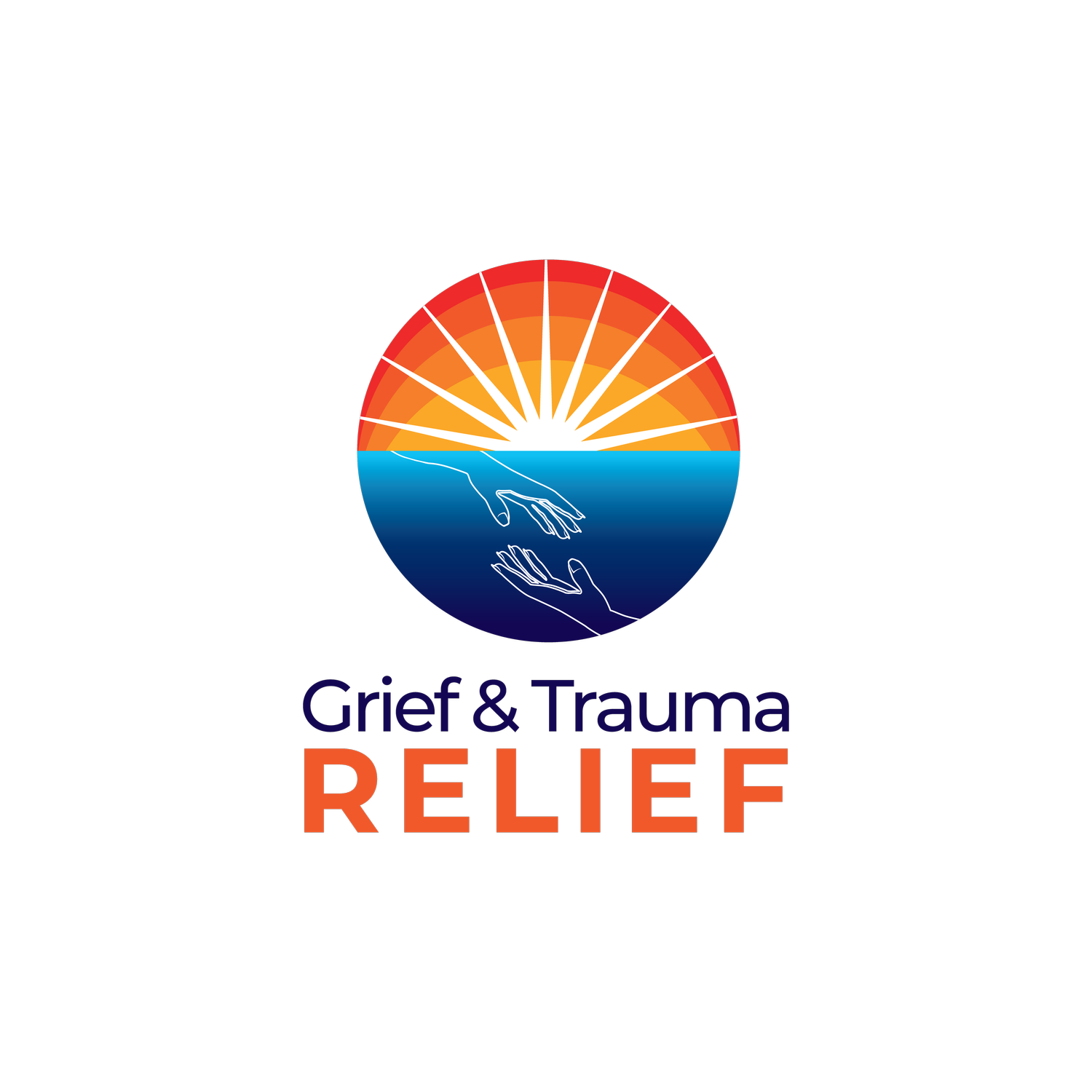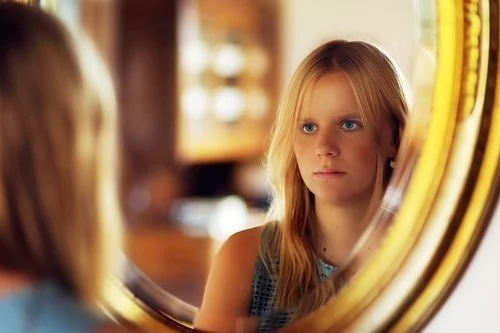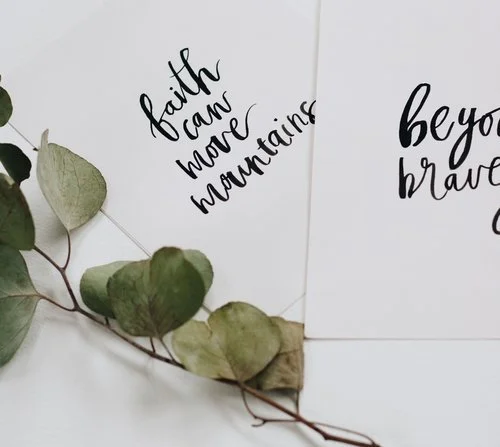How to Make Better Decisions
Sometimes decision-making can be a dreaded part of life. It can confuse us and often lead us to making the worst decisions. So, how can we learn to make better decisions?
Do you ever have difficulty making decisions?
This is surprisingly common in us all. So many of us find making decisions a real challenge throughout our lives. But when you also suffer from trauma, it can often seem extremely difficult.
With the limited amount of time we have available in our increasingly busy lives, it’s no wonder it’s difficult to make decisions from time to time. In a world where rushing around and being busy is the norm, we have to find strategies to help us make decisions, whether consciously or subconsciously.
Think of school tests or exams. So many decision distractors. Decision distractors are things like the multiple-choice responses you get to choose from. The incorrect ones are sometimes plausible, but incorrect.
Here are some possible decision distractors you may be familiar with:
· Spending a lot of time in our head, mulling over lots of information, running dialog of the pros and cons
· Experiencing past or present stress, anxiety or overwhelm
· Feeling denied of certain feelings, questioning your gut feeling
· Self-doubt, fear, and thought processes making it difficult to split the past and the ‘gut feeling’ present
· Seeking advice from your well-meaning friends and family who base their advice on their beliefs, ideas and their responsibility and risk appetite
Have you experienced any of the above decision distractors?
Introducing the Left Side
I’m so pleased to share that there is a solution you can implement when in this situation. When we’re caught in our mind - the formless continuum that helps us perceive and understand things - we sometimes forget we can tap into another part of our mind. We can choose to explore a part of the mind that can actually support us with making those decisions, on our own. This is the left side.
When a decision is placed in front of you and a choice needs to be made, your brain will scan historic memories and experiences, helping you make the best possible decision. You’ll hear whispers from your intuition – the thoughts you have which may not make rational sense. It can often feel like and be described as a ‘gut feeling’. There will be reasons why your intuitive brain will make the decisions they make, but they’ll often be overruled by the more rational side of the brain.
Picture this. You have a dinner planned with friends on the weekend. Your intuitive thoughts are filled with excitement, as you’ve not seen them for a while and have so much to catch up on. Suddenly, the rational side of your brain gets involved. It starts thinking about what could go wrong; what someone might say to you and replays an embarrassing moment that happened one time, many years ago. After much back and forth, you decide to ‘go with your instinct’ and attend the event, only to have the best dinner with friends you’ve ever had. This, my friends, is the power of intuition.
You’re ready for change
You have the opportunity to make decisions on something you’re passionate about, leaving you feel euphoric every day and helping you to lead a more authentic life on your terms. Can you feel the power?
Learning to make good decisions is instrumental to living a life that’s happier and healthier.
So, how do I do it?
Just knowing the difference between our rational and intuitive thought patterns is the most important part. And now you know it – amazing!
So when you have any decision to make (big or small), get out of your head and into your body. Tap into your Higher Self, and embrace your intuition for clearer guidance - through your Heart.
As it’s in your heart is where your intuition is…
It’s one of my favorite topics and there are so many exercises we can do together to improve your decision-making. So, book on a free 30-minute consultation with me, Janine, or contact me with any questions you have.
© 2019 Janine Naus
Do You Self-Reflect?
How far are you on your healing journey? What have you done so far? Let’s reflect and celebrate.
Here’s my favorite way of self-reflecting…
How to Self-Reflect
In a world that seems to get busier and busier, it can be a challenge finding the time to focus on self-reflection. Before we talk about a fantastic way of doing this, I have to emphasize that self-reflection is a crucial tool you must learn, practice and create protected time for.
If all you have done is read the paragraph above, you’re on your journey to creating heaven in your life. So, wherever you are on your path, appreciate this truly wonderful journey to finding inner peace. So, take a second right now, and congratulate yourself on the steps you’ve already taken to building a cherished, authentic life. Well done you. You’re doing great.
So, how do we self-reflect?
My favorite way to self reflect is as simple as it is enjoyable. And it comes in the form of a short meditation.
So, sit in a quiet place and say the phrases below. Take your time and practice this, not everyone feels it first time round. As you must always be on your healing journey, be open-minded and welcoming. The more you embrace this practice, the more you will achieve.
Focus on your breath. Say to yourself “I” as you breathe in, and “Am” as you breathe out.
I am great!
I am the light of your soul!
I am beautiful!
I am bountiful!
I am bliss!
I am love!
I affirm “I Am the limitless power within for all of my healing and transformation. I Am love.”
See, wasn’t that easy? Try and do this as often as possible. You’ll notice the more you practice it, the more blissfulness you will feel.
Want to learn more?
Start a conversation with me today in a free consultation and we can explore more ways for you to move forward on your path to inner peace.
© 2018 Janine Naus
What Are Your Limiting Beliefs?
Beliefs are not always something we choose. As children, the people in our lives have great influence on what become our beliefs. When these beliefs become limiting to us and our healing path, what can we do?
Where do our beliefs come from?
All of our views and decisions in life are governed by our beliefs. Beliefs are not always something we choose, but are created on a much more subconscious level. When we’re younger, our loved ones, friends, religious leaders and teachers passed on their beliefs to us and (sometimes unfortunately), a substantial amount of those beliefs are engrained into our psyche.
How to bridge beliefs…
Simply put, we replace old beliefs with new ones. We need to focus on beliefs that make us feel good and give them real airtime in our world. Create a more cherished, fuller life by shifting your attention to new, upbeat and optimistic beliefs and you’ll notice those old beliefs (that you never even chose in the first place!) will drift away and are soon forgotten.
There is no need to dig out old beliefs… just replace them with new beliefs.
How do we de-construct belief systems that are limiting us?
Think of a belief that limits you. And if you’re not sure of one, then to identify it, think of a belief you have that makes you feel negative emotion – sadness, anger or frustration. The great thing about bridging beliefs is that we don’t need to re-live the negative emotion. If we focus too hard on the limiting belief, we’re giving it the attention it needs to keep having such a powerful impact on us. So to do this best, we don’t need to concentrate on only ‘deactivating’ limiting beliefs, but actually focus our approach on activating new beliefs. And ironically, this is how we succeed at deactivating the old limiting beliefs.
Make sense? If you’re having trouble with limiting beliefs or want to take a deeper dive into how you can make belief transformation in your life, then please reach out to me for a free consultation. We need to give less (or no!) airtime to limiting beliefs and all the airtime to beliefs which will help us heal and create a happier, healthier way of life.
Focus on what you want and not what you don’t want, and you’re halfway there.
Here’s another great article to read about this same topic: Trapped by your Mind? Learn This Five Step Process for Releasing Limiting Beliefs.
© 2018 Janine Naus
How Can Our Choices Create the Right Experiences?
Do you make love-based or fear-based choices? Do you know how to transform your thoughts when making choices? Find out in this latest blog post.
How choices can create right experiences
Every day in life, we face choices, some big - some small. Are you someone who struggles making decisions? Do you find yourself worrying about the outcome of your decision-making?
When you make choice with fear, you will create a fear-based experience for yourself. In each one of us, we have to balance the experience when making choices, as we have an infinite number of imbalanced outcomes to choose from. As women who suffer with trauma, we can often feel that the safest thing to do is stay clear of making decisions, as we are frightened of the consequences. We can find ourselves making choices from a place of fight or flight mode; often petrified of the unknown consequences.
This is why some of us allow others to make choices for us – I know I used to! When they make a choice and it’s imbalanced – we often blame the person. If we allow others to continuing making our choices for us, we are left feeling powerless over the choices we have to make in our life.
Fear-Based Choices
To help us understand this a little more, think of a time when you’ve made a fear-based decision – this can be an instant decision for survival, or a longer-term decision you have made. Why did you make the choice you did? Obvious reasons to make fear-based decisions would be potential death, starvation or threat to your body. There are so many reasons you may opt for a fear-based decision – do any of these sound like your thoughts when making decisions?
· I am scared of being on my own
· What if I fail?
· I am fearful not being good enough
· Nobody will love me
· I won’t be accepted
How to manifest your thoughts
You can choose to fill your body with the feeling of love when making choices, replacing the fear-based feeling. Choose to allow love as your focus and draw yourself the thoughts required to allow you to experience love in the future. Here are the three golden rules to manifesting your thoughts when decision-making:
1. Open it – open your mind and authentic thoughts within you
2. Look at it – observe the thought as if from a distance
3. Experience it – live the thought through and be aware of how it makes you feel
If you want a helping hand to practicing better decision making, then schedule a free consultation with me today, and we’ll get you working towards a cherished life you’ve always dreamed of, which is filled with positive consequences as a result of your love-based decision-making.
Speaking of fear: every woman who has suffered trauma in their life has faced feelings of fear, here are 4 questions to ask yourself in a fear-fueled moment, to help you conquer fear.
© 2018 Janine Naus
How to Build a Stress-Free Life
If you have feelings of stress or overwhelm, then learn how to manage it with my short exercise. Hopefully it helps you as much as it has for me.
What stress does to our body?
Stress impacts every organ of our precious body. When we feel stressed, our body releases a surge of adrenaline (similar to a flight/fright response), which speeds up our breathing. We start talking faster, taking shallower breaths from our chest, rather than slow, deeper abdominal breathing that we take when we’re calm. And as we’re taking in more and more oxygen, our heart rate and blood flow begins to accelerate! Think of the time you last felt stressed, or if you feel stressed over the next few days, become aware of your breathing – you’ll see what I mean…
Don’t get me wrong, speeding up our breath and heart rate is healthy, in small doses. If we’re constantly triggering flight/fright mode from chronic stress, the habit of shallow chest breathing can fall into everyday life, even when the stress may be over.
When we were born, we have high levels of resilience to our window of tolerance. In your earliest memory, you’ll notice you never found yourself feeling - what we now know as - stress. As trauma and extreme overwhelm beds in, we lose our ability of ‘riding the wave’ and disconnect further away from our inner peace.
The guide to a stress-free life
Did you know that even when you set yourself the toughest goals, you could achieve them without stress or self-doubt? Living a purposeful life does not mean compromising on your stress levels, and ultimately your health. Feelings of stress are so often generated by a flight or fright response to a situation, so when we can manage this reactive feeling, we can control the impact it has on our body.
Try this: Open your mind and switch off the flight/fright response mode.
Breathe in for 4 seconds
Hold your breath for 7 seconds
Exhale for 8 seconds
Repeat until you feel calmer
Important: There is no need to remove beliefs from your belief system, simply replace them with new beliefs.
I think I know what you’re thinking: How will you remember the above in stressful times? Well, here’s what I do. I have a notepad I always carry around with me and also have this saved in the ‘Notes’ app on my cell phone. In times of stress and overwhelm, I find a quiet space and find peace through this practice. If you ever find yourself feeling unsure of how you feel, then read my previous blog post, which has the perfect exercise to authentically feeling.
If your situations of stress or overwhelm are taking over your life, and want to speak to an empathetic ear, then contact me today As you will have read in my personal story, I have been there and have practiced what I now preach. I look forward to helping you move forward on your healing journey.
© 2018 Janine Naus
3 Steps to Holding Space for Others
Whether you’re new to the art of ‘holding space’ or have been doing it for years, the impact is as powerful as ever before. Find out an easy method of how you can hold space.
Whether you’re new to the art of ‘holding space’ or have been doing it for years, the impact is as powerful as ever before. Holding space for others can truly help them through difficult periods in their life and can be an important factor in their healing journey.
In a previous blog post, we discussed how we’re all sacred beings and explored how we can become disconnected to our authentic self. From time to time we forget to simply ‘be’. Here’s another way to learn to feel safe with your feelings and help you on your journey to creating heaven in your life.
Hold space for yourself and others
Through difficult and painful times, you should ALWAYS hold space for yourself (and others). It helps you dilute any pain and suffering you could be experiencing. Holding space demolishes the invisible walls that you feel are stopping you from continuing your journey to an authentic world of inner peace.
Always remember that you’re being held by a power greater than yourself. Not only this, I am also holding a space for you too – so imagine being held, imagine feeling supported.
Want to give it a try?
Here are three simple, yet incredibly effective techniques to learn to hold space for yourself or someone else:
Quiet your mind and when holding space for others, be actively listening to who you’re talking to
Be silent and be with each other
Physical touch (give them a big hug)
There you have it, it’s that easy. You can now help bring healing through this beautiful practice. For those of you wanting to take a deeper dive into the art of holding space, Christina Lopes created a fantastic video I would recommend to you.
Discover how you can learn to hold space for others around you, and as a result become more aware of your fabulous feelings and super sensations in the here and now. To speak with me about how you can create heaven in your life, contact me today today and set up a complimentary 30-minute consultation.
© 2018 Janine Naus
Do You Know How You Feel?
When we were young we felt everything, and it felt authentic.
So what happened to us? And why are we sometimes confused about how we feel?
Finding authentic safety
Have you ever been confused about how you feel? This is very common for any woman who has suffered trauma in their life. When we were born, our inner, most authentic feelings guided us on our journey. We felt it all. As time goes on, others around you offer their opinions, which at times may be negative, demoralizing or possibly destructive.
They’re just opinions, right?
When we are young, we take every opinion personally. After all, how would we know differently? We’re unable to decipher what are simply opinions and as a result, we disconnect from our internal, authentic guidance. These opinions of others we take as gospel, and they break us down until we feel unsafe. We believe we’re wrong because we don’t fit in and begin chasing an ideal existence that just isn’t true to us. To feel unsafe in our internal guidance system, we are not being caring to ourselves. This has an indirect effect to our healing process and our authentic inner voice.
How to feel authentic safety
All of us have every right to simply ‘being’. After all, we are all sacred beings, who sometimes forget to just ‘be’. It’s time to wave goodbye to feelings of powerlessness, to create yourself a safe container and to feel all of your emotions securely. This really is a crucial step into creating a blissful, more cherished life.
Let’s start feeling again. To help you feel a state of authentic safety, follow these steps:
Close your eyes and take 3 deep breaths: feel comfortable.
As you inhale, be fully aware of what is beneath you: feel supported.
Expand that awareness to the ground beneath that (if you’re not already sitting on the ground): feel present.
Imagine Mother Earth. You are united deeply with her: feel connected.
As you exhale, let yourself feel the support of what supports you: feel protected.
Take a few moments to focus on your breathing and your physical sensations of everything supporting your body: feel aware.
Focus on your heart. Notice your physical and emotional sensations. Is it full or empty? Is it heavy or light? Does it feel separate, or is it connected? Notice your heart without judgment; simply be aware of what you are, and what you’re experiencing: feel authentic.
Practice this daily, or more often if needed. Don’t forget to share your experiences with others below, or contact me today to find out how I can help you.
© 2018 Janine Naus
Feel Faith in Gratitude
It needn’t be Thanksgiving to give our thanks for our life’s blessings.
Instead, here’s how you can give gratitude every single day…
“Thank you” is a phrase we hear all day, everyday. Whether for the gift of a wholesome meal, or from a complete stranger who opens the door for you, we give thanks for gestures big and small.
Feeling thankful is to feel grateful for something or someone. And when expressing gratitude for any experience in your life, you invite the Universe to give you more of what you want. Why? It’s simple. When you feel compassion, love and understanding from others, it brings gratitude to your heart. When you feel it, your attention is brought into the present moment – the here and now.
How to express gratitude
Are you unsure of what you should be grateful for? Or do you feel there’s not much to be thankful for?
It may feel this way, but you can choose to have faith in gratitude and it will help you find purpose and enjoy life to it’s fullest. “But how?” I hear you ask. Well, it’s very easy to start.
At the end of each day, take a few moments to focus on the blessings the day had to offer and encourage gratitude to experience deep levels of happiness, authenticity, fulfillment and wellbeing. Do as I do, and create a daily gratitude journal to note down who, or what has inspired you that day, and what has brought you happiness, peace and serenity.
Why express gratitude
Being grateful right now will result in so many positives, including:
A renewed appreciation for the amount you have to be grateful for moving forward
A happier, more present version of you, living in the moment with a greater flow of positive energy
If you’re still unsure of what you have to be grateful for, then ask yourself “what am I focused on?”. You may find you’re focused on things or circumstances you don’t want. And with this kind of focus, guess what you’ll be attracting? That’s right, more of what you don’t want. So shift your thoughts to something you do want; the things you do want to be grateful for.
Janine’s Top Tips
1. Sit down each day and become grateful – practice gratitude by creating a gratitude journal. Asking yourself, what am I grateful for?
2. Ask yourself what it is you’re focusing on? Is it things or circumstances you don’t want? Then shift your thoughts to something you do want.
3. If you’re still finding it a challenge, then watch this video by Oprah, where she teaches you how to find and practice gratitude in your life.
Please share your experiences below, or to speak with me, Janine, directly, then contact me today.
And finally, give yourself a huge hug. You’re doing great.
© 2018 Janine Naus
How To Rediscover your Inner Voice
Our authentic inner voice is unique to every single person. But when nurtured incorrectly, we can lose touch with it and start adopting an inner voice that just isn’t our own.
So, how do we reconnect to it?
Overcoming trauma requires a whole lot of strength, courage and willingness to learn. Along the journey, you will need to be compassionate with yourself, learn to trust and start building an authentic life.
To start building an authentic life, you must start with you and your own authenticity. When you were a baby, you had an inner voice, authentic to you, your natural self. From choosing to forgive to deciding who and when to trust, it is the thing that helps us make choices that ‘feel right’. When celebrated and nurtured correctly, our inner voice can be one of the most authentic, beautiful parts of our human existence.
When We Lose Our Inner Voice
When our inner voice is not nurtured correctly, more commonly through childhood, we tend to lose touch with it. Choices become harder, and even worse, don’t feel like our own. When those around us put us down over and over again, we start believing in what they have to say. With every pain we feel, we move further and further away from our authentic inner voice.
Getting Your Inner Voice Back!
There’s good news though. Once you’ve lost your inner voice, you can find it again. I had suffered the toughest of trauma, but found my authentic voice again. And now, everyday, I enjoy days filled with desire and purpose with a deep connection to my inner voice.
Like most practices in healing trauma, we must first start with acknowledging the pain that encouraged us to lose our inner voice. Instead of feeling and hurting from the pain, we must instead change the way we view it. Trauma and the pain we’ve suffered can be seen as a real learning, which helps us become who we are really meant to be.
So next time you’re hurt or down, ask yourself:
· What did you learn from the pain?
· Think about the position of whoever has inflicted this pain on you - is it more about their insecurities?
My top tip would be to do this in nature, somewhere that is still and quiet. Once you’re there, embrace your inner voice by saying out loud what’s troubling you. Once you’ve said it, simply wait, listen and feel what is true to you.
Your answer will come and it speaks to your truthful, authentic voice.
If you want to learn more about reconnecting with your inner voice then book a 30-minute free chat with me, Janine, by contacting me here.
And finally, give yourself a huge hug. You’re doing great.
© 2018 Janine Naus
The Truth of Intuition
Learn how to know when you’re listening to your intuition.
It’s a powerful tool on your path to transformation - enjoy.
How do you make the biggest and most important decisions in your life? It’s a question we don’t actively ask ourselves, but let’s think about it for a second.
When we have a decision to make, or a question that needs answering, we often look outside of ourselves for answers. Why not start tapping into the most incredible and insightful resource we have? Introducing your intuition.
Do you hear, sense, feel or tune into who you are?
Our intuition (or subconscious mind) is a true gift that always provides the self-awareness we need when we’re confronted with those big decisions and important questions in life. It guides us to our best possible direction, and gives us the answer that is beyond doubt, what is true for you. And for those on a journey of overcoming trauma, it is an invaluable tool. On previous blog posts, I’ve shared how intuition can help you heal from trauma.
The energy of intuition
Your intuition is the energy source behind who you are and the direct connection to your authentic self. Listen to your inner voice and become aware that it’s influencing everything you do.
Connect with this energy by shifting out of your head and into a more intuitive mind-set, by asking yourself:
What does your heart say?
What do I feel here?
What does my spirit or internal guidance say?
Listen to your intuitive voice
Your intuitive voice is spontaneous; it’s a feeling that comes from within for (what seems like) no real reason. You can start tapping into your intuition right away; it’s far easier than you’d think and is a truly spiritual and authentic experience.
But how do you know when you’re listening to your intuitive voice? Well, when you next hear it, don’t ignore it. Acknowledge it, say it out loud and you’ll remember it. And never ask if it’s right or wrong.
If you’re still unsure, then ask if it feels true to you? Your intuition is an energy that will open and expand - you will FEEL it. And if you don’t, it’s your head talking, and not your intuition.
Once you’ve started embracing your intuition, celebrate it, and praise yourself for an important connection you’ve made with your authentic self, the real YOU. Take pleasure in being informed with your heart. You are now present; you’re feeling, listening and responding. This is your heartbeat and your life force bringing you back home, to love.
If you want to learn more about the role your intuition plays on your journey to inner peace, then turn to me for guidance by contacting me today.
And finally, give yourself a huge hug. You’re doing great.
© 2018 Janine Naus
How Compassion Can Change Your Life
Discover what it means to be compassionate and how being self-compassionate can transform your world on your journey to overcoming trauma.
What is compassion?
You may wonder why you find it so challenging to be self-compassionate. You may also find that treating yourself kindly from a place of love just doesn’t come natural to you. The trauma we’ve suffered is so commonly the cause of our inability to be compassionate, especially with ourselves.
Well, it’s time to change that.
Every one of us has the wisdom and ability to be self-compassionate. It’s a resource we need to help us accept painful emotions, so we can heal from our trauma and find divine inner peace. The greater our pain and suffering, the more we need compassion.
Being compassionate means to love, be kind to and accept yourself. It is a blessing on your journey to healing and creating heaven in your life. Every step of the way, you should be kind and caring with yourself, celebrating your wonderful progress.
The benefits of compassion
When you bring compassion to all of life, you’ll be enlightened by a shift in your thinking and wellbeing. You’ll step into a powerful emotion, to a state between being a human and our Higher Self. The energy of the feeling of compassion creates a two-way interaction. In other words, you begin to feel togetherness, rather than feelings of separation or isolation.
Being compassionate with yourself will bring harmony to the relationships you have with not only those around you, but with yourself – which is just as (if not, more!) important.
What’s beautiful about compassion is that you can choose to start feeling it right away. You can allow yourself to step into nature to connect with the earth and absorb the natural beauty that surrounds you.
Check out this 5-minute guided meditation for developing self-compassion. Let me know how you find the video, or ask me a question by contacting me.
And finally, give yourself a huge hug. You’re doing great.
© 2018 Janine Naus
4 Questions to Overcome Your Fear
Every woman out there has faced feelings of fear in their lifetime, and sadly, this is even truer for women who have suffered trauma.
It’s time to transform your life. It’s time to overcome fear…
Every woman out there has faced feelings of fear in their lifetime, and sadly, this is even truer for women who have suffered trauma. Feeling scared or fearful isn’t something “normal” to talk about. We think if we suppress it, it may not exist – and that’s just not true.
What is it that you are scared of – responsibility? Death? Life? Love? Once you address it, you can transform it and then, you can transform your world forever.
We choose not to address it because it makes us feel anxious, upset and concerned. Naturally we don’t want to feel this way, but when we do, it can be a destroying blocker in our route to healing from trauma and creating heaven in our lives.
Remember that you’re a strong, powerful woman. See that those unwanted dark recesses that pop into our heads every so often, are only in our imagination – the unhelpful side of it.
I find it useful to define fear this way:
False.
Evidence.
Appearing.
Real.
Face the Fear
Fear is normal and is a familiar feeling to rest of the world. Accepting this as a first step will help you acknowledge that fear is a part of you. So embrace it and recognize that it is not useful to your awaiting journey; the journey to inner peace, self-love and a cherished life you deserve. View it from a place of witness and step through it and say a big YES to life.
Think about this: All of our life decisions, reactions and responses come from a place of fear or love.
How to Overcome Fear
Sometimes we give power to this barrier of fear, and it simply doesn’t deserve to hold you back. You’re on a pathway to beautiful transformation, and you have the power to decide how you experience the world around you.
To understand, witness and face feelings of fear next time, ask yourself these 4 questions:
1. Have I surrendered?
2. Have I surrendered enough?
3. Is there any other way I can transform my fear?
4. Are you coming from love, or coming from fear?
Remember: by transforming your fear you can transform your world forever.
Let me show you how. Start a conversation with me today and learn how to start your journey to creating heaven in your life – just as I did.
Are you yet to hear my story? Please note, it’s not for the faint hearted. Read it here.
© 2018 Janine Naus
Mastering the Art of Meditation
Breathing, singing, listening, chanting or dancing - how will you meditate?
Discover the importance meditation plays in your journey to overcoming trauma.
What is meditation?
With the chaos of modern day life, it’s easy to feel stressed or overworked. These negative emotions can make us tired, unhappy and frustrated. But when we learn to open our heart to meditation we can overcome these negative emotions, and find inner peace and balance.
Once we master the art of meditation, we start being aware of, and having the power to control our own feelings; to have the strength to transform our mindset from a negative to a positive place.
For a practice that is thousands of years old, it’s only in recent years where we’ve seen a huge uplift in the number of people taking up meditation. Whether it’s by humming, breathing, singing, listening or dancing, people all over the world meditate in a number of different ways. Whatever way you choose to meditate, the sensation of being still and in the present-moment can be both powerful and exhilarating.
Why should you meditate?
For women tackling trauma, we can so often have multiple thoughts racing through our minds. And even worse, it’s all too common for the negative thoughts to overshadow any positivity. Check out my monkey-mind management article to understand more about how you can witness those thoughts and even label your mind’s characters (or minions as I like to call them). Differently though, meditation isn’t about witnessing your thoughts, but mindfully nudging them out of your head, so you can achieve a state of total stillness and tranquillity.
The aim is a transformation of awareness, which opens up potential for awakening and creativity. If you ever feel like you’re just not feeling yourself, then meditation will allow you to connect yourself to back to your source, to your unconditioned self.
How do you meditate?
It’s so important to find a practice of meditation that you can master. Because there are so many ways to meditate, and so many people who teach meditation, you have a variety of options. Practicing meditation is no big commitment. In the space of ten minutes you can be in a place of complete present-moment awareness.
I’d recommend starting with my favorite teacher – davidji.
Through guided meditations he has taught me how to move from an unhappy state to a happier, more mindful, version of me; a ‘me’ who has the power to make decisions and live life on my own terms. When you open your heart to meditation, you give your mind a special boost it needs to help you heal from trauma - from improving your intuition, to conserving compassion, to granting forgiveness.
Here is a great first video for beginners, as well as the more seasoned meditators out there:
https://youtu.be/wzjiwIQZr8Y
Have a question about the art of meditation? Or do you want to start a conversation about your situation, let me lend an ear. - get in touch today.
© 2018 Janine Naus
Meet your Monkey Mind: The Experiment
Believe it or not, we all have a monkey mind. That’s right, even YOU have the mind of a monkey!
Find out how to witness your Monkey Mind at work…
Believe it or not, we all have a monkey mind. That’s right, even YOU have the mind of a monkey!
We have thousands upon thousands of thoughts each day, about similar and completely differentiating topics. This is especially true when we’re on the journey to overcoming trauma.
Picture this:
You’re walking down a busy street. A car passes by. You’ve forgot your umbrella. You’re now drenched. You run into a coffee shop. A customer stares you up and down…
That’s a whole lot of thoughts right there isn’t it? And in the space of seconds…
Your mind is a monkey, swinging from branch to branch, from thought to thought.
Naming your monkey mind characters
My monkey mind has a host of characters, which come into play in various situations and times of the day. I call them my minions. More often than not, they bring negative mind chatter to my thoughts – which prove to be unhelpful and can be destructive.
Simply knowing this can help you a great deal. Because I’m now aware of the Monkey Mind and it’s capabilities, I run experiments to see what’s really going on up there. I choose a day where my minions will be active and really come to life. When I hear the negative mind chatter, I identify the character by the name of which I call them:
“Ah there’s Sad Sadie”
“Here’s Angry Anteater”
“Wait, here’s Joyful Janine”
Practicing this experiment isn’t easy. You must allow everything around you to happen, without thought or feeling. For me, I look around, witnessing the coming and going of the characters. I begin to notice thoughts appearing and disappearing, as it’s replaced by the next thought in the queue.
It’s fascinating what you witness and how the Monkey Mind chatter changes so quickly.
How to witness your Monkey Mind
To do this correctly, follow these three golden rules during the experiment:
1) Allow everything to just happen
2) Look at what goes on around you
3) Witness your thoughts coming and going
By the end of the experiment…
You’ll have learned a valuable technique, which you can use in all types of situations, including learning…
· to witness, without thinking
· to be aware of your being and the difference between thinking and witnessing
· you cannot think and witness at the same time
The best thing about this experiment is that you can start right away. Run this experiment for a few hours today, or one day this week. Comment below to share your experiences of trying this. It may feel strange at first, but remember to heal you must open your mind, as well as your heart.
“Thinking is a function of the mind. Witnessing is a nonfunction of the mind.” ~Taoshbuddha
Have a question about your Monkey Mind? Or do you want to start a conversation about your situation, let me lend an ear - get in touch today.
© 2018 Janine Naus
How to Grant Forgiveness
Whoever you are and whatever journey you’re on, you will most certainly have needed to make some important decisions along the way. But what is it that helps us make these significant choices? And why are they often so different to the choices made by others around us, even when they’re facing similar circumstances?
Well, this is where our values come into play.If you have suffered trauma in your life, then you have likely been told you need to practice forgiveness at some point along your journey.
Believe it or not, forgiveness isn’t all that scary. In fact, the act of forgiveness can leave you with a sense of freedom that you have been searching for a long time to find…
Before you read any further, take a moment to think about the word forgiveness. How does that word make you feel?
Strong?
Peaceful?
Angry?
Fearful?
Disgusted?
Weak?
If you have suffered trauma in your life, then you have likely been told you need to practice forgiveness at some point along your journey. If so, how did you react? Maybe you turned your back on the idea. Perhaps you even scowled at the thought. Or, maybe you just balled it all up inside and let the thought of granting forgiveness fuel your anger.
Believe it or not, forgiveness isn’t all that scary. In fact, the act of forgiveness can leave you with a sense of freedom that you have been searching for a long time to find.
Don’t fear forgiveness
Forgiveness is not easy. If it was, then forgiveness would be granted all the time without a second thought. Instead, it is complex and something most people dwell on at great length. Whether they believe that forgiveness isn’t deserved, hasn’t been earned, or the words just won’t come out – it rarely ever happens quickly.
Don’t fear forgiveness. It is hard to not fear something that we don’t think we are capable of. Consider climbing Mt. Everest, being thrown into a starring role on Broadway, or scoring a huge promotion at work. If you don’t have the confidence to face and conquer these tasks, you will find your knees shaking with fear.
Telling yourself you are going to forgive the person or persons who caused you so much pain and sorrow in your life may just be enough to send you running in the opposite direction.
Don’t let it.
It is about you
Your trauma may have left you with a destroyed sense of trust, love, self-worth, and so much more. When it comes from the hand of someone close to you, there is an even greater sense of betrayal that encompasses the pain.
Remember, the need for forgiveness is for yourself – not for the perpetrator. Forgiving someone is not saying that what he or she did is okay – and that you are over it. So, by granting forgiveness, you are not excusing the actions nor are you condoning them. Instead, you are healing yourself.
Forgiveness should not be feared, rather it should be viewed as a positive outcome that requires some strength and guts to obtain. But there is no set time-frame when you should forgive. And, taking longer than someone else is completely normal. Having difficulty finding the ability to even forgive at all is not uncommon, either.
Just know that once you take the step to forgive… your life will forever be changed.
The power of the phrase, I forgive you
Has anyone ever told you the phrase, I forgive you, for something you may have done, big or small? If so, you know how it made you feel on the receiving end.
But, did you know that the best part of that phrase – the part with the most power – comes from the person saying it?
Coming to a place in your life when you can finally forgive someone for the pain they caused you – and verbally speaking the phrase, “I forgive you,” - can leave you feeling an immense amount of peace. The weight that has been sitting on your shoulders for years will suddenly feel lighter – or may even disappear altogether. And all that anger and hurt and harbored feelings of ill will may slowly begin to be viewed through a different light.
I forgive you is a life-changing phrase that those who have experienced trauma need to find the ability to say. Maybe not now, not tomorrow, or even next year. But, one day.
Reach for forgiveness
Whatever your reaction to forgiveness, you need to reach for it. You are here because you are trying to overcome trauma and find a sense of peace, right?
Forgiveness is a crucial step in your journey.
You have felt the hurt and the pain. You have struggled through the emotions and the scars left behind by the trauma. And, you have slowly started to re-build a safety net around your life to give yourself the life you deserve. To feel fully free, however, you will need to let go – and forgive.
For yourself.
Trauma can be debilitating. And, the only person that can help you step above it is – you. Not your friend, not your family, and not your enemy. Only you. As you work through your journey of self-love, growth, and healing, you are going to come to a place that requires forgiveness. This is a personal step that will bring peace into your life.
Don’t waste another minute being stuck holding on to these horrid emotions and heavy chains.
To talk more about forgiveness or spark a conversation about your situation, let me lend an ear. Get in touch today.
Discover the important role that our values play in our decision-making and how we can adopt values to start winning in life.
© 2018 Janine Naus
7 Values You Should Adopt
Whoever you are and whatever journey you’re on, you will most certainly have needed to make some important decisions along the way. But what is it that helps us make these significant choices? And why are they often so different to the choices made by others around us, even when they’re facing similar circumstances?
Well, this is where our values come into play.
Whoever you are and whatever journey you’re on, you will most certainly have needed to make some important decisions along the way. But what is it that helps us make these significant choices? And why are they often so different to the choices made by others around us, even when they’re facing similar circumstances?
Well, this is where our values come into play. We all have a number of core values that play a part in every decision we make, big or small. Most people don’t know what their core values are and, as a result, they make decisions that lead them astray and find that they are left feeling stuck in situations that make them unhappy. Simply being aware of this is a valuable tool and can play a vital role in healing feelings of powerlessness and frustration.
My values and I
Whether we’re aware of them or not, we all have our core set of values. For me, being aware of them and making value-based decisions has led me to dedicate my life to helping people just like you, to transform their lives and overcome their trauma.
I follow seven values that you may want to consider adopting. The values you choose will help you determine the life you want, through the decisions you want to make.
So, what are they?
1. Integrity
Always listen to your inner voice and never lose faith of what exists inside you. Pure integrity allows us all to forever feel whole and complete.
2. Authenticity
You’re 100% committed to living (and loving!) a life aligned with your values and purpose.
3. Compassion
Your compassion is boundless and shines throughout, helping you to naturally understand and care for your own trauma and that of others.
4. Truthfulness
To create heaven you must be honest with yourself and others. You mask no secrets and share your truth with complete compassion, limitless love and undeniable understanding.
5. Personal Development
Arriving at this point in your journey isn’t by luck, nor is it by chance; your inquisitive and curious nature to positivity in life has got you here.
6. Authentic Love
You’re devoted to authentic love - through compassion, patience, kindness and determination to understand everyone who needs your help, advice or simply to lend your ear.
7. Inspiration
It doesn’t matter who you are, or what life’s thrown at you… Trauma will ALWAYS pass. You inspire others to never give up hope and tirelessly reassure them that they’ll find perfect harmony within themselves.
So, what’s next for you?
These values are just a snippet to your potential world and how you will make decisions in the future. Your values are not fixed, you can choose and learn to follow any values to enjoy a cherished life, filled with love and meaningful relationships. My values have allowed me to guide people to follow the things they love in life, and have led them to a happier, more authentic existence.
Take a deeper dive into these values here, or read my full personal story to understand my journey – be warned, it’s not for the faint-hearted.
Want to discuss your values? Click here to schedule your complimentary 30-minute Trauma Relief Strategy Session with me.
© 2018 Janine Naus
What is Trauma?
Trauma is tricky - and it is nearly impossible to see when you are in the midst of it.
Let’s take a step back and ask what is trauma, how does it impact us and what steps can we take to heal from it?
For many people, trauma becomes a way of life – it is how things have always been. For others, it’s a cycle that holds them hostage like a door to a washing machine. But, for everyone, in order to heal from trauma, you have to know what it is.
Think about it: How can you break away from something you don’t understand? How can you differentiate between such things as abuse and love if you can’t even see good from bad?
Trauma is tricky - and it is nearly impossible to see when you are in the midst of it. One of the only ways to stop it is by personally encountering a glimpse of hope, joy, and/or confidence. In fact, this tiny bit of empowerment is what gives you the boost of strength to fight through the trauma to reach the peaceful life that you so deserve. In other words, taking the first step can help you lead to more.
Trauma is your response.
Trauma is your response to a negative event. Trauma is not necessarily the horrible event itself – or even a series of events, but rather your reaction to them.
How are you handling the traumatic event?
How does it affect your life?
Are you able to continue through with your daily routine?
Have you had to change your normal routine in life due to unwanted feelings or behaviors resulting from a traumatic event?
Do you find yourself avoiding specific people or places?
Sometimes, even when you think a negative event doesn’t affect you, it does. And, this can be incredibly dangerous.
A painted picture of trauma.
Trauma reveals itself in various forms. One’s picture of trauma can greatly differ from another’s. You are a unique individual with a special set of traits and characteristics all your own. Experiences that may hurt you or may be viewed as traumatic may differ from someone else’s experiences.
In all, however, trauma comes from a negative experience or event. These may include:
Rape or molestation
Sexual abuse
Physical abuse
Emotional abuse
A natural disaster, such as a flood, tornado, or hurricane.
An act of terrorism, both directly or indirectly.
Domestic violence
Dating violence
Victim of a crime such as a burglary, mugging, shooting, assault
Bullying
A car accident or serious injury
Whether it is one small traumatic event or an entire series over a great length of time, your body’s reaction can leave you in a dark place void of joy. That is how powerful trauma is.
The many symptoms of trauma.
Trauma can leave you with symptoms that may include:
Physical symptoms:
Fatigue
Pale complexion
Listlessness
Lack of concentration
Increased heart rate
Emotional symptoms:
Anger
Emotional outbursts
Denial
Sadness; void of happiness
Inability to focus
Lack of concern or care
Some even find themselves diagnosed with psychological disorders, such as Generalized Anxiety Disorder, Major Depression, or Post Traumatic Stress Disorder (PTSD). These are mental health disorders whose symptoms are commonly found with someone who has experienced a trauma.
It is important to remember that trauma is ugly – and it is painful. Being clinically diagnosed with a condition does not take away from your strength. In fact, it adds to it because you are facing your struggles and you are seeking a better life; a healthier, happier life.
Healing from trauma.
Healing from trauma is no easy feat. Luckily, you possess a great amount of power – didn’t you know? You can see yourself where you are and where you are going. You can recognize your trauma and let it go, replacing that pain and hurt with joy and love. You can transform your life and blossom into the person you always wanted to be.
Sure, it is going to be hard work. And, it is going to cause you to make some hard changes, but positive change is possible. You will have to learn to take responsibility for the trauma you experienced. Own it - then, grow from it.
How does that sound?
Perhaps you cannot see these things just yet. And maybe you think you never will. But, with the help and guidance of a certified life coach, you can.
If you are ready to take a step that will change your life – and help you find Heaven where ever you are standing, then it is time. Contact Janine Naus, your life coach that has been through the trauma and has transformed from it. She wants to help you live your best, joy-filled life.
Don’t you think it is time to let go? Click here to schedule your complimentary 30-minute Trauma Relief Strategy Session with me.
© 2018 Janine Naus
How To Build Faith
Society's programming taught us that you must see it to believe it. Building faith is easier than you think. Building faith means moving in the right direction. It allows you to push through effortlessly through any resistance, and with time it creates an unbreakable strength…
Society's programming taught us that you must see it to believe it. Building faith is easier than you think. Building faith means moving in the right direction. It allows you to push through effortlessly through any resistance, and with time it creates an unbreakable strength. You can practice faith to set the dynamic for manifesting your being into whom you wish to be. When you allow faith unseen, you expand your world into infinite opportunities.
Gratitude
One of the most powerful tools you have for building faith is gratitude. It grounds you and makes you savor the joy and happiness of life at that moment, which creates with time, more of that which you seek. You begin to feel yourself in a flow state with your personal growth and push through resistance with ease. With gratitude, your positive aspects of life continue to expand to what it is that you desire. How you feel is an important sign of whether you are following what you wish to manifest in your life.
Your Mind is Powerful
If you emotionally arrange yourself with your thoughts and your faith, you can manifest what you aspire from yourself. Keep in mind you may meet some resistance with what it is you truly want, but trust yourself. The spirit within you already knows what it is you want to do.
You find faith by reaching for that feeling. When everything is alive around you; that's faith. Faith builds up through your intuition, where you connect to the message of your God, Goddess, Spirit, Universe or personal higher power. We desire a connection to our self and our higher power. It is that connection that helps us to reach our highest potential. It is after you have achieved this feeling, and aligned with your higher power that you can manifest your desires into your life.
“Faith in its purest form is the absence of resistance even when there is no physical evidence present. It’s a knowing that the evidence defies.” ~Abraham Hicks
Vision of Yourself
Most people define what they do want, by describing what it is they do not desire. The result is you are not clear about your vision when you specify the negative. Take inspired action instead to think about what it is you specifically want to occur. You’ve come into this world to align yourself with whom you are. If you align yourself with your vision, it feels incredible, and you are full of energy. Conversely, if you do not align yourself with whom you are meant to be, it saps your energy and drains you. When you feel the faith of connection, it's real. You will feel the clarity and alignment.
If this blog post helped you, subscribe and join our community. Let's build the life you deserve.
“Faith in its purest form is the absence of resistance even when there is no physical evidence present. It’s a knowing that the evidence defies.” ~Abraham Hicks
© 2018 Janine Naus
What Is Intuition and How It Can Help You Heal From Trauma
As a culture, we learned to believe our rational minds take precedence when we need to decide on something. The decisions we need to make include things like what to eat for breakfast, lunch or dinner or when we are buying a home. But what about those moments when things don’t feel right? Those moments we have a gut feeling, an instinct, hunch or premonition about something? We all experience such feelings or intuition at times in our lives. It is a deep feeling that we carry inside. Sometimes we shrug off the feeling while other times we take steps.
As a culture, we learned to believe our rational minds take precedence when we need to decide on something. The decisions we need to make include things like what to eat for breakfast, lunch or dinner or when we are buying a home. But what about those moments when things don’t feel right? Those moments we have a gut feeling, an instinct, hunch or premonition about something? We all experience such feelings or intuition at times in our lives. It is a deep feeling that we carry inside. Sometimes we shrug off the feeling while other times we take steps.
What is intuition?
According to Sonia Choquette, “Intuition is an ability that we are born with; it comes from our non-verbal and intuitive right brain, and never goes away. However, most of us suppress it over time and prefer to listen to the logical left brain. The trick is learning how to interpret the information you receive.” This means it is something we have. It comes from our brain. It all comes from the logic and reasoning within us.
Intuition is difficult to explain, but easy to feel. It’s that “inner voice”, that little something, that gut feeling, and something instinctual coming from within you telling you how you feel beneath the logic layers. Intuition appears quickly in consciousness. It’s noticeable enough to make you act if you want to, but without being fully aware of the reasons for its occurrence. It also gives you the ability to know what you are dealing with directly without the need to bridge the gap between the unconscious and conscious parts of your mind. It arises without analytical reasoning or bridging the gap between instinct and reason. To keep it short and precise, it is your “Inner teacher.”
What does intuition mean for us?
Since intuition helps us to understand something instinctively, it means a lot to us, especially those who experienced or are experiencing trauma. In this case, intuition can be the best way to venture into your internal world, heart, aura, and soul and find a way to heal from the inside. It gives us the ability to enter our body and help us make decisions that suit our problems at that moment. Intuition is an incredibly powerful asset, if not misused. It's our key to a better decision-making future. It's more reliable than simply our mind. Intuition can lead us when we don’t have conscious reasoning.
Another thing that intuition can bring you is clarity and inspiration. It helps you identify when soothing is right or wrong. In other words, your intuition will inform you when something is not in alignment and give you the ability to align, clarify and bring inspiration to your life’s purpose. So, if you feel empty, not the depressed empty, but unwary empty, if you don't hear your intuition or gut feeling like you used to, you need to initiate it. How do you succeed?
How to initiate intuition
As shared above, we all have the knowledge we carry inside us. This knowledge or intuition gives you the information and wisdom needed in life. To access this wisdom, you need to get in touch with your intuition. Now that you know what intuition is, and what it means to us as humans, it’s time to learn what you need to do to initiate your intuition.
The easiest way is to meditate. A daily meditation practice is the most effective way of becoming aware of your intuition. One thing meditation offers is clearing your space to help you reconnect with your inner self and initiate your gut feeling. If you feel like you don’t have the gut feeling and intuition, then meditation can help. Other things that you can do to initiate your intuition includes things like:
Get moving: avoid sitting in one position for a long time. Get more oxygen. Take a walk or do something that will give your brain more oxygen. The results are rewarding.
Asking your intuition questions: ask open-ended questions…a question answered by more than a yes or a no. Like Lynn A. Robinson, M.Ed., an expert on the topic of intuition says, "Spend your remaining time writing any and all answers that pop into your mind. Don't censor or judge the responses until you've completed the exercise."
Allow yourself to daydream: daydreaming is a powerful intuitive tool. Allow your mind to wander to wherever it wants to go.
Visualize: try to create an image in your mind. You may gain insight in your image that solves a problem. Sometimes, intuition doesn’t come to us with words but appears in visual images.
Since intuition can help you access your inner self and wealth of wisdom: you need to learn how you can get in touch with it. This way you can avoid making irrational decisions and make sure you are making more accurate and strong decisions.
How to become aware of your intuition
After you initiate your intuition, you need to become aware of it. You need to understand how it works. You need to know when it works. Frustration could arise if you cannot explain what that gut feeling relates to. To understand your intuition, you need to let go of the frustration, relax and try the following:
Step away from the current situation: By giving yourself some breathing space and stepping away you become aware of your intuition. Stand up, go somewhere to relax, or walk in nature. Whatever your mind tells you to do, now is the best time to do it.
Be honest with yourself: It's easy to ignore your gut feeling and brush them off. Sometimes we may put the gut feeling away, and take an easier option because we don’t want to change direction. We are afraid of failure, or we don’t want to say no. Be honest with yourself. Acknowledge your unsettled feeling. Let your intuition guide you as you become aware of it. Just simply focus.
Try writing a journal: Sometimes writing is a great way to become aware of your intuition. A journal allows you the space you need to release emotions, process your thoughts, work through issues and allows for greater understanding, knowledge, and self-discovery. Writing a journal helps you to become aware of your intuition.
Can your intuition help you create the life you want?
As you become more aware of your intuition, your life experiences start to unfold in front of you. As these experiences continue, it's time to take a deep breath, observe and discern your next step. If you want your emotions to lead your observation, then you need to follow through with inspired actions. Always avoid creating your reality with emotional acts.
For example, if someone angers you and you respond in anger, more anger will follow. It's reality with an emotional response. However, if you had just stopped and taken a deep breath, even for a moment, you will get the time to connect to your intuitive power inside you. This way you get into what feels right even if getting there means you have to take baby steps.
One important thing to pay attention to is the signs your intuition gives you. It doesn’t always tell you what you want to hear but if you focus it will tell you what you need to hear. For those experiencing trauma, paying attention is very helpful. Taking a deep breath and knowing how you are feeling once your intuitive signs are real provide you with insight. Coincidences become noticeable and you feel hunches for a perfect outcome.
Another thing you need to consider is listening to your intuition. Pay attention to how you are feeling, allow yourself to feel your way through life and stay tuned with your feeling. It's the only way you can expand your life experiences. If something feels right, pay attention to it. Your intuition may guide you to something you never dreamed of, and you will be more confident when it comes to decision-making and following your hunches.
Always remember when dealing with intuition, you continue to consider your rational mind and reason things out. Intuition and your ability to reason complement each other. Balance is also important. Balance your gut feeling and your reasoning ability knowing that your feelings are important, especially during decision making. Reasoning can guide you through your intuition. They go hand in hand. When your intuition is in alignment with your desired result, you can set your intentions and feel them in a vibratory nature. They allow things to flow into your reality.
How intuition can help you make powerful, measured and authentic decisions that are true to you, and in alignment with your heart
Today we rapidly gain new experiences every day. Technology, our busy schedule, trauma and everything that goes on in our day-to-day life add new experiences. The good thing about experiences is that they give you an opportunity to become an expanded version of your true self. Intuition allows you to understand your inner self, the divine connection that helps you navigate through life.
To make powerful, measured and authentic decisions take the time to feel grounded and centered, become more aware of the signs and messages you are getting and choose your intuition consciously. Balance your intuition and the rational part of you. Set intentions and remain open to your trust and intuition. When you do these things, your highest good comes into your being. As Comedian Michael Jr. puts it, “When you know your ‘why’, your ‘what’ becomes more impactful because you’re walking towards or in your purpose.”
Trust your Intuition
Think of your trust as a camera. You can take a clear picture of your Intuition by adding more light, which means developing and understanding your intuition. You can also turn ordinary images into extraordinary ones by listening to your intuition. The result is better decisions. Trust what you want from life and from your intuition. Trust your intuition to come to you. These are the best ways to leverage your power. Listen and understand your intuition.
If you would like to find out more about intuition and how it can help heal trauma… Click here to schedule your complimentary 30-minute Trauma Relief Strategy Session with me.
© 2018 Janine Naus
Dig Deep Into Your Mind For Positive Experiences
Our mind is what tells our body what to do. When our mind moves, our body moves. In fact, what is in our mind can be exhibited outwardly by our body. For example, when you are sad, your shoulders may slump and you may move more slowly.
Did you know that this great mind of ours is split into two parts? It sure is – the conscious mind and the subconscious mind. Think of it as if there is an invisible line separating your mind into these two parts. Each part has its own characteristics.
Our mind is what tells our body what to do. When our mind moves, our body moves. In fact, what is in our mind can be exhibited outwardly by our body. For example, when you are sad, your shoulders may slump and you may move more slowly.
Did you know that this great mind of ours is split into two parts? It sure is – the conscious mind and the subconscious mind. Think of it as if there is an invisible line separating your mind into these two parts. Each part has its own characteristics.
Our conscious mind allows us to think freely and create new ideas. It is simply trying to make sense of our experiences. It encompasses all our senses, such as touch, taste, sight, sound, and smell. We can physically experience these things. These senses send the information to our conscious mind and we can make decisions, choices, and evaluations based on what we encounter.
But what about the things that aren’t tangible? That is where our subconscious comes in to play. It is full of all our beliefs and memories to include unconscious (repressed) thoughts such as irrational thoughts, feelings, emotions, fears, etc. that we have accumulated over our lifetime. You may find yourself on the road to a peaceful place in your life now, but every negative, hurtful, abusive, mean, fear-driven experience you have had in your entire lifetime can disrupt that peace – and it all comes from that subconscious mind of yours.
Think of it this way:
You are finally at a place in your life that you can take some classes to get that nursing degree you have always wanted. You go to your local college, you meet with an advisor, you sign up for classes, you pay your tuition, then proceed to the bookstore to get the necessary materials for your classes.
Consciously you know you can handle them and you are ready. You know your previous studies and how well you did. You have discussed everything with your advisor and you have prepared the way to move forward. But then, right there in the middle of the bookstore, you begin to have a feeling of doom and you are bombarded with questions like, “What makes you think you can handle this?” or “You know you won’t succeed at this program so why are you wasting everyone’s time?” And, of course, “You are not cut out to be a nurse.”
That is your subconscious mind piping up and giving you its two cents, as if you asked for it, right? And its feelings are all based on your lifetime of experiences – like that time when your ex told you that you worked at the local grocery store because you could never do anything better. Or that time in school when you didn’t understand the assignment and the professor made an example out of you in front of the class. Or maybe it is the years of being put down by your mother when you were growing up – you never did feel “good enough.”
Everything that you have experienced in life has been soaked up by your subconscious and has led you to react the way that you do. See, your conscious mind can kick back the info it doesn’t want. But your subconscious isn’t that nifty. It is like a sponge – and it fills itself with the good, the bad, and the ugly.
That, my friend, is why it is so important to dig deep into your mind and clear out all that negativity and repair all that damage. The best way to start this process is to become aware of how you react in each situation. Let’s visit the four conscious perceptions that can get you focused on how you react -- both internally and externally.
Perceptions: Step outside yourself to learn how you perceive a situation. Be objective, rather than subjective, and ask yourself, “How do I perceive this situation?” This can allow you to analyze your feelings to discover why you may perceive a situation one way instead of another.
Assumptions: You will make assumptions in every situation. And, believe it or not, in each of these situations, the assumptions will change depending on circumstances, who is present, etc. We have reasons as to why we assume and, since our life has been different than the next person, their assumptions will be different, too. Be aware of the assumptions you make.
Expectations: Our expectations of something or someone are usually based on desire or fear. When we think positively of someone, it likely stems from desire (and often we tend to overlook any negative traits because the desire is so great). If we think negatively, it is likely stemming from fear.
Feelings: Yes, we give our feelings a name, but our body, its language, and its vibrations can send vibes to those around us – giving up our current feeling or emotion, without us even having to say it. Know your body.
It is important to be aware in each situation and how your mind acts and reacts. If you are having good thoughts, but not getting good results, then you will want to look deeper into your subconscious mind to see what is going on.
Remember, your conscious and your subconscious do not necessarily work in sync – and your subconscious has been programmed automatically for you. When you begin to align your conscious and subconscious thoughts your life flows and you manifest what you desire.
You can shift your experiences through focused intention of your conscious mind. Choose to refrain from trying to make sense of it all and simply be open to receive positive energy deep within your subconscious mind then healing can occur. The more you increase your awareness of this, the easier it will be to obtain the results you are looking for.
If you’d like to talk further about shifting your life toward positive experiences… Click here to schedule your complimentary 30-minute Trauma Relief Strategy Session with me.




















